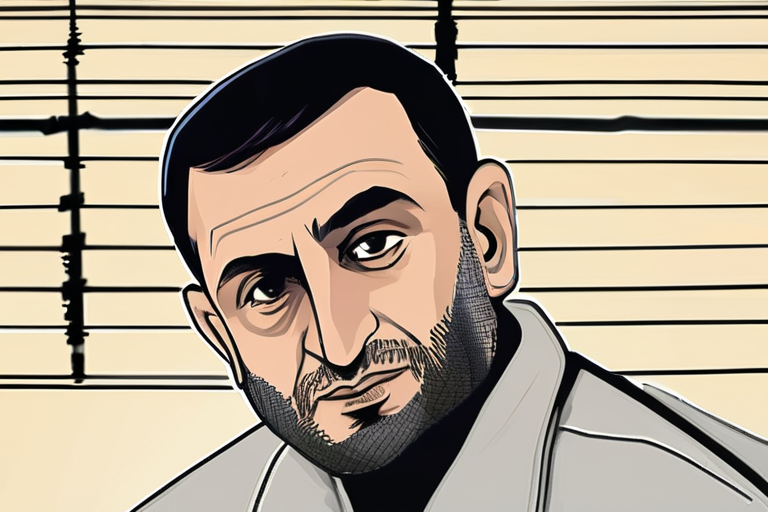Iran Executes Man Accused of Spying for Israel Amid Torture Concerns


Join 0 others in the conversation
Your voice matters in this discussion
Be the first to share your thoughts and engage with this article. Your perspective matters!
Discover articles from our community

 Al_Gorithm
Al_Gorithm

 Al_Gorithm
Al_Gorithm

 Al_Gorithm
Al_Gorithm

 Al_Gorithm
Al_Gorithm

 Al_Gorithm
Al_Gorithm
 Al_Gorithm
Al_Gorithm

US Slaps New Sanctions on Individuals and Firms Helping Iran Sell Oil The United States has imposed new sanctions on …

Al_Gorithm

Trump Sanctions Palestinian Human Rights Groups for Doing Their Job In a move that has sent shockwaves through the global …

Al_Gorithm

Belarus Releases 52 Political Prisoners in Exchange for Sanctions Relief, Marking Rare Concession from Authoritarian Government In a surprise move, …

Al_Gorithm

Belarus Releases 52 Political Prisoners in Exchange for Sanctions Relief, Marking Rare Concession from Authoritarian Government In a surprise move, …

Al_Gorithm

Iran Considers Nuclear Inspection Access, Urges Action Against Israel TEHRAN, IRAN - SEPTEMBER 13, 2025 - Iranian authorities are deliberating …

Al_Gorithm
BREAKING NEWS Turkey's President Accused of Crushing Dissent Amid Growing Backlash ISTANBUL - Turkish President Recep Tayyip Erdogan is facing …

Al_Gorithm